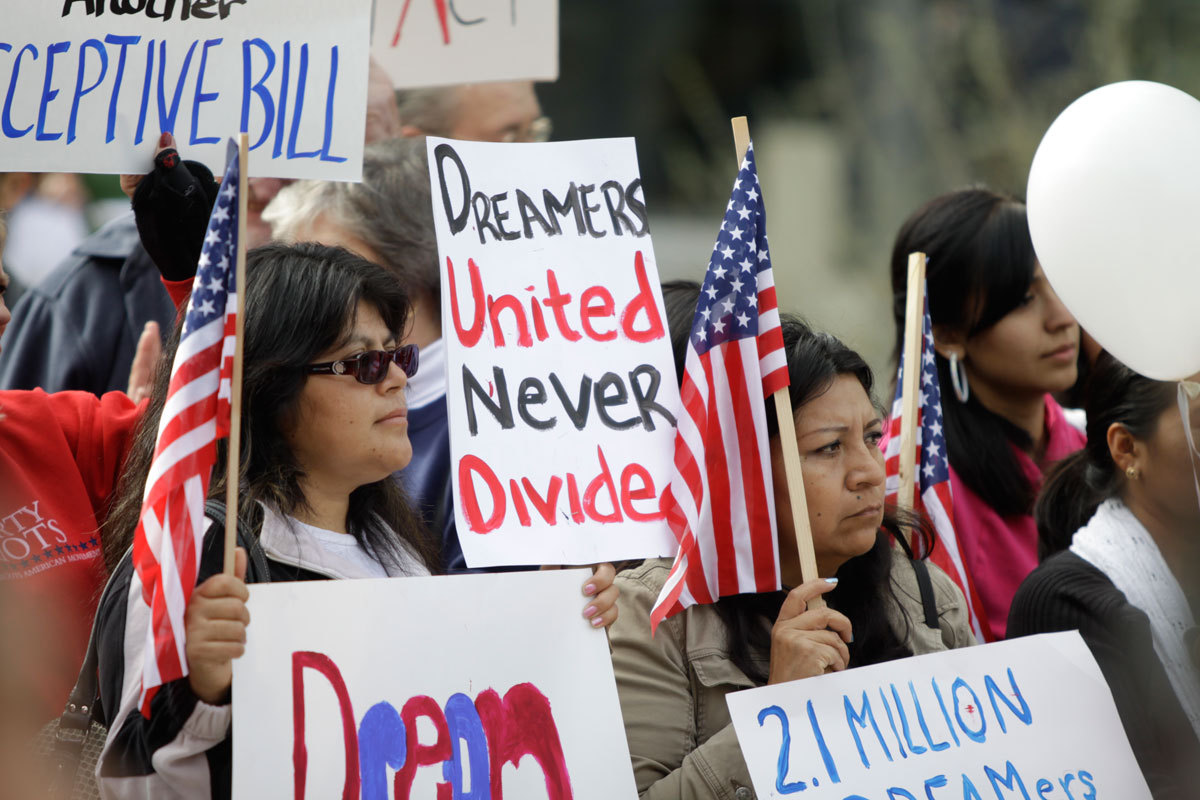DACA might be at risk. Here’s what that means.

After immigrant youth spent years relentlessly organizing and protesting against U.S. deportation laws, President Obama signed an executive order called Deferred Action for Children Act (DACA) in 2012. DACA was created to provide temporary deportation relief to eligible undocumented youth who had migrated to the United States as children. But those protected by DACA now fear its rescission due to the current administration’s toxic rhetoric surrounding immigrants—a fear most recently reiterated on July 20, when then-Secretary of Homeland Security John Kelly told members of the Congressional Hispanic Caucus that the Deferred Action for Children Act might be at risk.
This announcement notably came after the introduction of a bipartisan bill by Senators Durbin and Graham that would “provide Dreamers with a path to citizenship.” But despite the bill’s broad and bipartisan support, The Hill reported that the Trump Administration is “unlikely to support the new bill.” What’s more, because Trump has long promised to remove “unconstitutional” Obama-era policies, yet hasn’t actually done so, a group of Republican state officials have threatened to take action on this issue if Trump fails to do so; they promised to push for the removal of DACA by September 5, according to Vox. On July 13, Trump told reporters that he, and not his subordinates, would make the final decision regarding DACA, adding that it’s a decision that’s “very, very hard to make.”
In the wake of this announcement, the public has expressed a great deal of confusion about what the possible demise of DACA might mean for those who are currently protected by it as well as how to support those individuals. While legislation creating a legal path to residency for undocumented youth and previously been implemented—the 2002 DREAM Act—DACA is different in that it’s an executive order rather than a piece of legislation. This means that while recipients are not provided with a pathway to citizenship or permanent protections, they are, however, granted the authorization to work within the United States and, depending on the state, access to a driver’s license. To receive DACA’s benefits, applicants to the program must meet an extensive list of requirements and renew their DACA status every two years. An estimated 800,000 “Dreamers” have been able to attend college, legally work in the U.S., and pursue their dreams without fear of deportation thanks to DACA.
In reality, making a decision regarding DACA shouldn’t be difficult. Ending DACA would cost states billions of dollars, and potentially cost Trump the support of 75 percent of his voters, who claim they want legal status for Dreamers. Barbara Sostaita of Feministing writes that under the rescission of DACA, “hundreds of thousands of youth will lose their licenses and potentially their jobs, private scholarships, and educational opportunities. They will also be at a (higher) risk for detention and deportation.”
But given the uncertainty of our current political climate, those who identify as Dreamers should make sure they’re prepared for DACA’s demise. Feministing suggests the best way to do this is by brushing up “on Know Your Rights materials, making sure you have an ITIN via the IRS so you can work at least as a consultant/contractor, and prepare a Third Privacy Waiver Form (this form allows a third party of your choice to request any information about your immigration or deportation case).”
If you are not personally in the program but wish to be an ally to Dreamers, you can reach out to your undocumented friends and offer your support: make it known to them that you are there for them through this difficult time. You can also sign these petitions as well as donate to or volunteer with the organization United We Dream and help fund scholarships for Dreamers.
While these are important steps to take right now, it’s undeniable that a more permanent solution requires far more comprehensive immigration reform. Moving forward, we must not only #DefendDACA, but also fight to ensure a path to citizenship for all immigrants.
More articles by Category: Feminism
More articles by Tag: Activism and advocacy


























